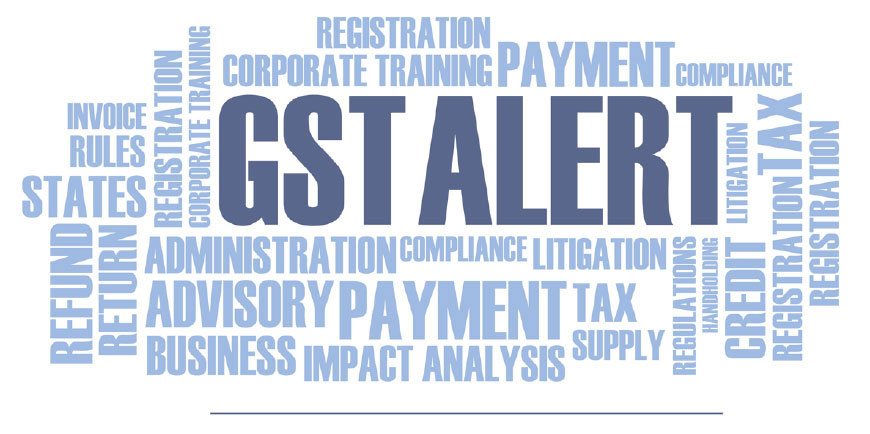- Dated 04th June, 2025

Karnataka High Court rules GST not leviable on solatium in land acquisition, holding it is part of statutory compensation and not a taxable service
Brief Facts:
The Assessees were landowners whose immovable properties were compulsorily acquired by the Karnataka Industrial Area Development Board (KIADB) for the Bangalore Metro Rail Project. As part of the compensation package offered by the Bangalore Metro Rail Corporation Limited (BMRCL), the Assessees received various components of compensation including an amount described as "solatium" which is typically paid in recognition of the compulsory nature of the acquisition. Pursuant to this, the Assessees executed all necessary documents including agreements under the Karnataka Industrial Area Development Act transferring their rights in the land to the State. Subsequently, the tax authorities issued SCNs demanding payment of GST on the solatium component of the compensation, treating it as a taxable supply of service. In some cases, orders were passed confirming the demand. Aggrieved by the show cause notices and the resulting orders, the Assessees approached the High Court.
Assessees' Contention:
The Assessees argued that the solatium received as part of the compensation for compulsory acquisition of land is not liable to GST, as the entire transaction amounts to a sale of land, which is expressly excluded from the scope of supply under Entry 5 of Schedule III of the CGST and KGST Acts. They contended that the acquisition was a statutory, involuntary process, not a contractual arrangement for consideration, and thus does not constitute a "supply" under Section 7 of the GST Act. The Assessees further submitted that they neither agreed to tolerate the acquisition nor rendered any service, but simply relinquished their land rights as required by law. Relying on Circular No. 177/09/2022-GST, they emphasized that even developed land is not subject to GST, and solatium, being a component of land compensation, should be treated likewise. Taxing such statutory compensation would violate constitutional limits on GST applicability to immovable property.
Department's Contention:
The tax department argued that the payment of solatium constituted a taxable supply under Entry 5(e) of Schedule II of the CGST Act, which covers agreements to "tolerate an act" in exchange for consideration. According to the department, the Assessees, by accepting compensation including solatium, had effectively agreed to tolerate the compulsory acquisition of their land, thereby rendering a taxable service. They contended that solatium was not merely part of the sale consideration for land but an additional amount paid specifically for the hardship or compulsion endured by the landowners. As such, it represented a distinct and independent element of consideration, separate from the value of the land itself. The department further asserted that GST law is intended to have broad coverage, and the solatium formed a separate value addition within the compensation package, justifying its treatment as a supply liable to tax.
Decision:
The Court held that solatium paid during compulsory land acquisition is not subject to GST, as the transaction amounts to a sale of land under Entry 5 of Schedule III of the CGST/KGST Acts, which is outside the scope of supply. It found that the Assessees did not render any service or agree to tolerate the acquisition; the compensation, including solatium, was a statutory entitlement, not consideration for any taxable supply. Relying on Circular No. 177/09/2022-GST, the Court emphasized that such transactions involving immovable property are constitutionally excluded from GST. Accordingly, the show cause notices and tax demands were quashed as being arbitrary and without jurisdiction.
BTA's Comment:
This judgment is a significant reaffirmation of the legal and constitutional boundaries of the GST framework in India. By striking down the levy of GST on the solatium component of land acquisition compensation, the Karnataka High Court has underscored the fundamental principle that statutory compensation for acquisition of immovable property, including compulsory transfers, is outside the scope of indirect taxation under GST legislation. The ruling provides critical clarity for both taxpayers and governments, ensuring that compensation paid to landowners under eminent domain cannot be mischaracterized as a taxable service. This decision not only preserves the integrity of GST legislation's intent but also upholds the federal balance inherent in India's constitutional tax structure.
Case Reference: Asha R. Versus Assistant Commissioner of Commercial Taxes (2025) 29 Centax 391 (Kar.)
Author: Debanjan Ranu
Edited by: Shaily Gupta
Contact Us
BT Associates
Call: 033 2534-2717 /
033 6451-8729
Mail: enquiry@btassociate.com






